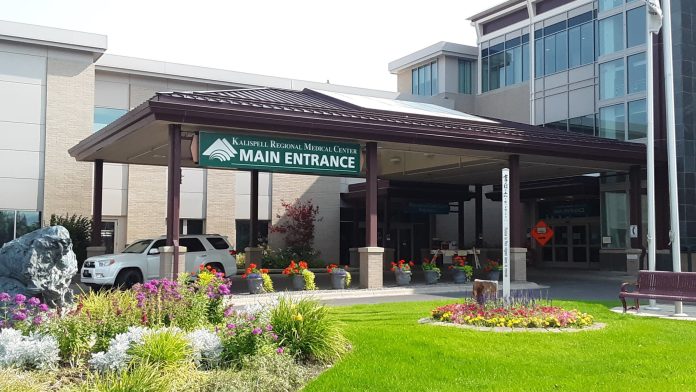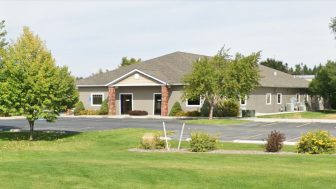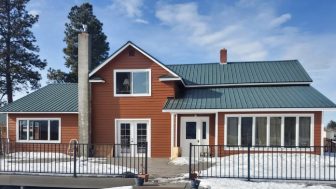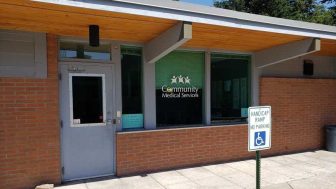Logan Health Behavioral Health
200 Heritage Way
Kalispell, MT 59901

About Logan Health Behavioral Health
You'll find Logan Health Behavioral Health based in Kalispell, Montana. They offer inpatient treatment services for individuals with co-occurring disorders. The facility has 40 beds and is staffed with addiction counselors, psychiatric nurses, and other qualified medical professionals. Clients can pay for services through Medicare and Medicaid.
Alternative Therapeutic Approaches for Healing
One thing that I found really notable is how they offer a diverse range of approaches to help clients with recovery. A client’s daily schedule at Logan Health could include participating in substance abuse groups, yoga, and animal therapy.
Individuals can discover new ways to manage their stress that don’t involve using substances. When you’ve completed your treatment program, you can continue activities like yoga at home or in relaxing environments like Lone Pine State Park. I love that you can do other sober activities there, such as biking and snowshoeing.
Alcohol Withdrawal Relief Through Meds
Clients can receive prescriptions for alcohol use disorders to reduce their withdrawal symptoms and cravings. The staff provides naltrexone to be taken orally. The facility can also implement benzodiazepine tapers if needed.
Amenities
Art and music are mediums that connect with our feelings, making them a great recovery tool during addiction treatment. Studies show that combining art/music and drug rehab can have a greater therapeutic impact than drug rehab alone, as you’re able to access parts of your brain and body that you may not have access to during traditional talk therapy. Benefits of art/music therapy include lowering stress and anxiety, promoting healthy neurochemicals, and providing stress relief.
Music can be extremely therapeutic, serving as a valuable healing tool and an integrative feature of a holistic treatment plan. A music room offers a large number of outlets, including singing, playing musical instruments, and listening to music.
Private drug rehab provides a comfortable, secure environment that allows you to focus on doing the work to get your life back on track. Benefits include a higher staff-to-client ratio, increased one-on-one time with therapists and healthcare providers, private rooms for clients, and customized forms of therapy.
Residential drug rehab provides the comforts of home with the therapeutic support needed to successfully recover. Benefits of an inpatient program include increased safety, a higher success rate, and the time and distance given to focus on recovery. Residential drug rehabs are often the preferred method of treatment, as they can be tailored to meet specific needs, offer focused therapeutic care, and provide the necessary tools to sustain recovery.
In order to maintain a sense of autonomy, many private rehab facilities offer clients the ability to choose their own private rooms. The privacy and personal space ensure that the recovery process is as comfortable as possible.
Addiction Treatment Programs
Young people in high school, college, or starting their careers can find it challenging to seek addiction treatment. A young adult program in Montana helps overcome barriers of this stage of life by addressing these challenges and offering customized treatment.
An adult program in Montana may provide high-intensity treatment, low-intensity services, or a full continuum of care. Programs are designed to meet each individual’s needs and put them on a healthy recovery track.
There are many programs that offer men’s rehab in Montana. At these facilities, men receive supportive, gender-specific services they need to achieve recovery.
Gender-specific care is available at women’s rehab in Montana for women seeking addiction treatment. These programs provide treatment that is geared toward women and the unique issues they face.
Many addiction treatment centers include cognitive behavioral therapy in Montana as part of individualized recovery plans in either outpatient or inpatient treatment. This action-focused approach equips participants to make changes in thoughts and behaviors.
Sound & Music Therapy are complementary treatment modalities frequently used in addiction recovery to support clients’ physical, mental, and emotional wellbeing through the use of auditory stimuli, from nature sounds and Tibetan singing bowls to drum circles and rhythmic melodies. The treatment is believed to reduce symptoms of anxiety and depression and may offer relief for those experiencing chronic pain, which can decrease clients’ risk of addiction relapse.
Levels of Care
During outpatient rehab in Montana, you will focus on developing life skills to prevent relapse. This is accomplished through regular sessions with a therapist as well as accountability through support groups such as NA or AA. There is no set timeline for outpatient rehab, since it is based on each individual’s recovery needs.
The Montana dual diagnosis model integrates treatment for both mental health and substance abuse disorders. Specialists from both fields provide crucial treatment, so all of your recovery needs are met.
Greatly reducing the risk of relapse, aftercare rehab in Montana provides ongoing assistance after you complete treatment. Counseling services, support groups, and career coaching are some of the services offered. Aftercare support can continue as long as you need it.
Living at the rehab for the duration of your program, you're able to receive 24/7 care from an inpatient drug rehab in Montana. In this setting, you’ll receive treatment interventions that include individual and group therapy, recreational therapy, nutritional counseling, and medication management.
When you finish rehab, you may not be ready to live on your own. Sober living in Montana provides a transitional step. You’ll live with others who are in recovery, adhering to strict house rules and maintaining a job. This step typically lasts several months, but you can determine when you are ready to move on to independent living.
Partial hospitalization programs (PHPs) in Montana allow you to participate in onsite treatment sessions during the day, then return home at night. PHPs can involve different individual therapy methods, along with group and family counseling sessions.



